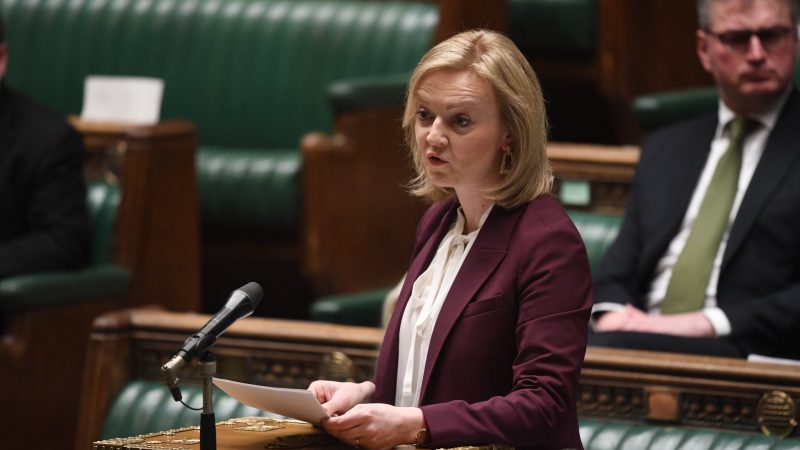
G’day mate!
When it comes to Australia, it seems the place just cannot stay out of the British news. A whitewash in the Ashes series, a ban on Novak Djokovic, and now Liz Truss commandeering her own aircraft to go down under and “advance freedom and democracy around the world” – yes, she really did say that.
But the big Aussie news is not in bats, balls or aircraft – it is in tariff rate quotas, product specific safeguards, and sanitary and phyto-sanitary controls. These are the things that have prompted the NFU, the Livestock Meat Commission and the NI Food and Drink Association to criticise the government for negotiating a trade deal that will damage UK farming, resulting in more food miles and less food security. One Tory MP even said it was as “one-sided” in Australia’s favour as the Ashes series!
It has been more than 40 years since the UK last negotiated its own free trade agreements. The UK-Australia FTA is therefore a benchmark of what is to come. Other countries will look at this deal to gauge what concessions they may be able to extract from the UK when they sit down to thrash out their own deal.
Currently more than a third of the beef we consume in the UK is imported (362,000 tons), but only 4,000 tons of it (1.1% of imports) comes in free of tariff. In year one of the trade deal, Australia will be able to import up to 35,000 tons tariff-free. Within a decade, that figure will be 110,000 tons almost exactly 10% of all the beef we consume each year.
“But that will never happen”, say the government impact assessments: Australian beef exporters get a higher price for their beef in the Asian market than they do from us, so they have no reason to switch their customer base. The mistake is to think it’s about switching. They may decide to increase output to supply both markets. Operating at a profit margin differential in different markets has long been a feature of global supply chains.
The other mistake made by the modelling is to assume that everything else remains the same. Given the current tense state of diplomatic relations between Australia and China, and the various disputes they currently have within the World Trade Organisation, a Chinese shutdown of Australian beef imports could precipitate a crisis for Australian farmers who would be desperate to refocus their exports into the UK.
Farming in Australia is about scale and NFU president Minette Batters has warned that the prospect of their farming firepower being unleashed on the UK market could result in “the slow withering death of family farms” here in the UK. Perhaps the clearest example of this is in their national flock of sheep. Currently rebuilding from a historic low, it still has 68 million, and that is projected to rise to about 104 million when fully restocked. 40% of our sheep production in the UK is from small family-based upland farms, where profit margins are tight. Yet in the next decade this market will be opened up, tariff-free, to Australian sheep farmers.
Competing toe-to-toe against livestock produced at high volume and finished on a pasture-based system will not only put unsustainable pressure on these family farms, it could damage the whole of the UK tourism industry. The landscapes of the Lake District and the Yorkshire Dales have been fashioned over centuries by sheep. To think they will remain the same when the sheep are gone is fanciful.
Eat breakfast before reading the next two paragraphs – because the Australian’s attitude to animal welfare is not quite the same as ours either. They feed their pork with ractopamine, which causes severe cardiovascular stress in the animals and can cause similar health problems for people consuming the meat. So Australian pork will not legally enter the UK market under the trade deal. But there are other issues of animal welfare and environmental policy that this trade deal has simply failed to address. The RSPCA has a long list, from hot branding to the lack of slaughterhouse CCTV. The most controversial, though, is “mulesing”.
Mulesing is where at six months the lamb’s buttocks and the whole area around its anus are literally skinned alive with a pair of shears. This is done so when the scar tissue forms, no wool grows in that area which might collect faeces and attract fly strike infection. Often, the process is conducted without any anaesthetic! Yes, there are alternatives. And we do not allow mulesing in the UK, but there is no requirement for Australian meat imports to meet our animal welfare or antibiotic use standards.
Australia is also the second largest exporter of raw sugar in the world. Here in the UK, we produce 50% of our own consumption from our beet growers, and previously imported the balance equally from beet farmers in the EU and cane farmers from the Caribbean and least-developed countries. The government’s own impact assessment admits that the displacement effect of Australian cane sugar being able to come into the UK market tariff-free might not only impact on our beet farmers, but could see preference erosion of African and other LDC producers: Guyana is projected to lose £21.3m; Belize £24.3m.
The lesson here is that trade policy must be integrated with our development policies, our stance on human rights and social justice, and our environmental and animal welfare policies. This is why I developed Labour’s ‘just trading’ principles and launched them at the World Trade Organisation in Geneva back in 2018. I haven’t heard them referred to recently, but it would be good to know that the Labour frontbench is still committed to them.




More from LabourList
‘Labour won’t stop the far right by changing leaders — only by proving what the left can deliver’
‘Cutting Welsh university funding would be economic vandalism, not reform’
Sadiq Khan signals he will stand for a fourth term as London Mayor